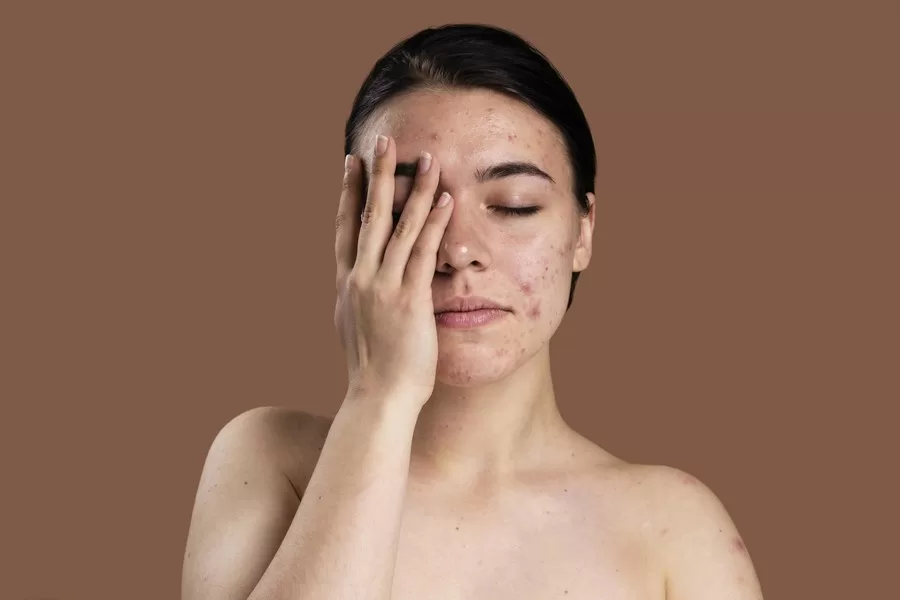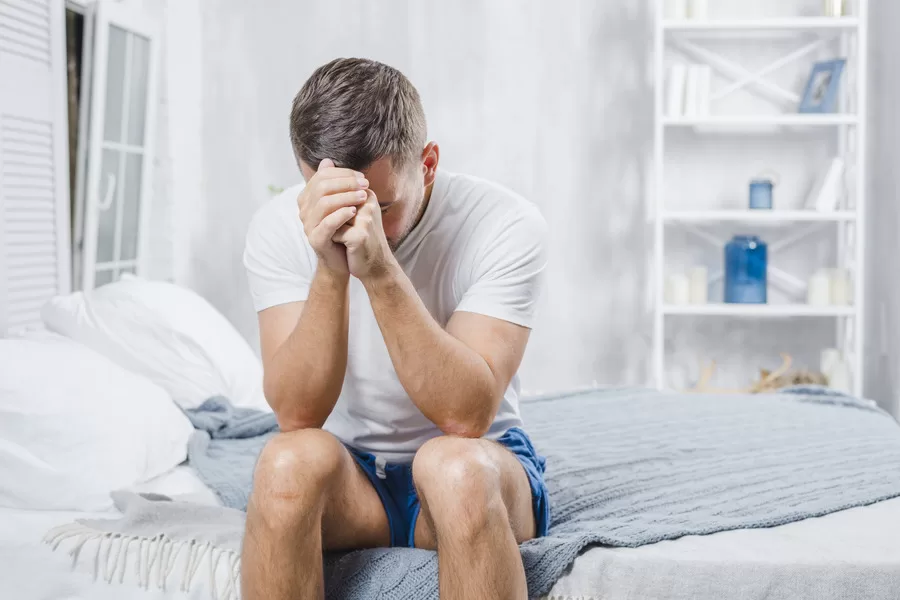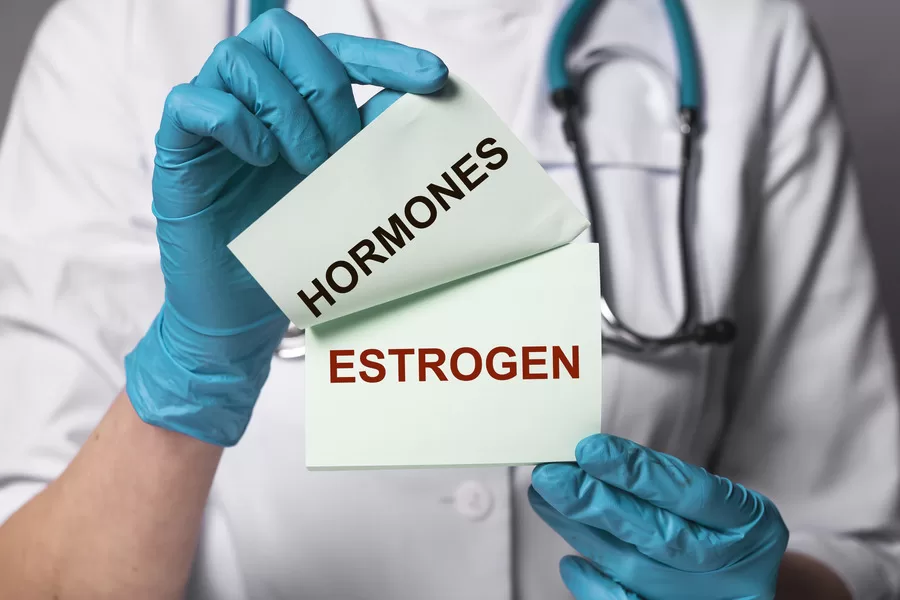
Hormonal balance is very important for a healthy body. The level of hormones determines a person’s weight and height, skeletal structure, condition of blood vessels and skin, etc.
What is Hormone Balance?
Hormonal balance is a condition characterized by normal hormone levels in the body, ensuring the proper functioning of organs and systems. Hormones act as messengers. They transmit important information between cells and organs. Even small changes in hormone concentrations can cause serious disruption in the body and lead to various endocrine diseases such as hypothyroidism, hyperthyroidism, diabetes, and sex hormone imbalance.
Hormonal balance affects a person’s overall physical and emotional well-being. Abnormal hormone levels can cause fatigue, irritability, changes in appetite, sleep and mood disturbances, and problems with sexual function.
Endocrine System
The endocrine system is a system of glands in the human body that produce hormones and regulate various body functions. The key glands of the endocrine system include:
- Pituitary gland – produces growth hormones, prolactin, adenocorticotropic hormone, etc. It controls the function of other endocrine glands;
- Thyroid gland – produces hormones such as thyroxine and triiodothyronine. They regulate metabolism and energy balance;
- Adrenal glands – produce cortisol, aldosterone, and epinephrine, involved in regulating stress responses, electrolyte balance, and inflammation;
- Pancreas – produces insulin and glucagon, which regulate blood glucose levels;
- Ovaries (in women) and testes (in men) – produce estrogens and progesterone (in women), as well as testosterone (in men). These hormones are responsible for the proper functions of sex organs.
As we can see, each gland performs unique functions and interacts with other systems to maintain balance and normal body functioning.
Hormones
Estrogen, progesterone, testosterone, cortisol, thyroid, and insulin are the major hormones in the human body. Check out the table and learn more about their functions.
- Pituitary gland – produces growth hormones, prolactin, adenocorticotropic hormone, etc. It controls the function of other endocrine glands;
- Thyroid gland – produces hormones such as thyroxine and triiodothyronine. They regulate metabolism and energy balance;
- Adrenal glands – produce cortisol, aldosterone, and epinephrine, involved in regulating stress responses, electrolyte balance, and inflammation;
- Pancreas – produces insulin and glucagon, which regulate blood glucose levels;
- Ovaries (in women) and testes (in men) – produce estrogens and progesterone (in women), as well as testosterone (in men). These hormones are responsible for the proper functions of sex organs.
| Hormone | Functions |
|---|---|
| Estrogens and progesterone | The main female sex hormones that play an important role in the proper functioning of the female reproductive system. |
| Testosterone | The main male sex hormone that determines the development of secondary sexual characteristics and normal sexual function in men. It is also present in a woman’s body but in much lower concentrations. |
| Cortisol | Protects the body from stress, regulates blood pressure, and participates in the metabolism of proteins, fats, and carbohydrates. |
| Thyroxine and triiodothyronine (T4 and T3) | Affect the body’s metabolism, temperature, growth, development, energy, and other physiological processes. Thyroxine is produced by the thyroid gland in large quantities, but only part of it is activated into T3, which is the more active form of the hormone and has a stronger effect on the body. |
| Insulin | Regulates metabolic processes that provide the body’s cells with the energy necessary for life (controls blood sugar levels). |
Therefore, each of the hormones is very important. This makes it clear why hormones imbalance causes many negative reactions in the body.
Symptoms of Hormonal Imbalance
Some typical symptoms indicate hormonal problems. Mood swings, irregular periods, weight changes, fatigue and decreased libido are the first things to look out for.
Irregular periods
Irregular periods are any deviations in the duration of menstruation or the frequency of its occurrence. This disorder is common in women of all ages. The main cause is a woman’s hormonal imbalance, which leads to unstable bleeding. First of all, we are talking about changes in estrogen and progesterone levels
Mood
Hormone issues often lead to a disrupted production of dopamine and endorphins, which are responsible for pleasure and good mood. As a result of such changes, a person may experience severe irritability, nervousness, anxiety, and depression. Adrenal hormones also influence a person’s mood.
Weight
Hormonal imbalance can affect a person’s weight in different ways. It all depends on the specific hormone and mechanism of action. For example, an underactive or overactive thyroid gland can lead to changes in the body’s metabolism. Hypothyroidism (low levels of thyroid hormones) slows down metabolic processes, causing weight gain. Hyperthyroidism (overactive thyroid), on the contrary, speeds up the metabolism, which can lead to weight loss.
Impaired insulin production can trigger the development of diabetes. As a result, blood sugar levels become uncontrollable, leading to increased appetite and weight gain.
Changing estrogen and progesterone levels in women can influence the accumulation of fat in the abdomen, thighs, and buttocks. Polycystic ovary syndrome (PCOS) is also associated with hormonal imbalances and can lead to obesity. This is why woman hormone balance is so important.
A lack of growth hormone causes a decrease in muscle mass and an increase in adipose tissue, which leads to weight gain. Imbalances of other hormones, such as cortisol and leptin, can also affect weight proportions.
Fatigue
Constant fatigue is another sign of hormonal imbalance. Women often associate it with housework. But this condition requires contacting a healthcare provider and searching for effective treatment methods.
Libido
Sexual health is an integral part of overall health. The main hormones that regulate sexual desire are estrogen, progesterone, and testosterone. All three hormones are present in both male and female bodies. However, women have significantly less testosterone than men, while estrogen and progesterone are predominantly female sex hormones. Hormone excess or deficiency can provoke changes in libido.
Hormonal Imbalance Effects
People with hormonal imbalances may experience various unwanted effects (reproductive, bone loss, acne, weight gain, hair loss, etc.). The paragraphs below provide detailed information about this.
Reproductive
Reproductive diseases (difficulty giving birth to a child) are the most common hormone-related problems. The explanation here is simple. Hormones play a key role in regulating and maintaining human reproductive function. They control ovulation, menstruation, embryo implantation, pregnancy, and childbirth. Estrogens, progesterone, and testosterone influence the generation of eggs and sperm, their maturity and release. They also regulate the condition of the endometrium (the inner layer of the uterus), supporting its preparation to receive a fertilized egg.
Bone
Abnormal hormone levels can cause bone damage. This is because hormones play an important role in regulating the metabolism of calcium and phosphorus (the main components of bones). For example, a lack of estrogen in postmenopausal women can lead to osteoporosis, poor bone density, and an increased risk of fractures.
Acne
Hormonal imbalance cure helps get rid of acne. This condition usually occurs due to a disruption in the production of testosterone, estrogen, and progesterone, which negatively affects the sebaceous glands, leading to increased sebum production and clogged pores.
Weight gain
Hormonal imbalance may be one of the reasons for weight gain. Hormones such as insulin and leptin control appetite and metabolism. If these hormones are not balanced, you may experience uncontrollable appetite and slowed metabolism. This results in weight gain. So, female hormone balance is a good basis for proper body weight.
Hair loss
Hair loss usually occurs due to elevated levels of dihydrotestosterone (DHT), which shrinks the hair follicles and stops their growth.
How to Diagnose Hormonal Balance?
Hormonal imbalance diagnostics includes various studies. One of the most common methods is a blood test for hormone levels. A more accurate examination may involve a thyroid puncture or ultrasound scan. In any case, you should start by visiting a medical center and consulting an endocrinologist.
How to Treat Hormonal Imbalance?
Treatment depends on the hormonal imbalance cause and symptoms. The optimal approach involves a combination of lifestyle changes, diet, exercise, and hormone replacement therapy.
Hormone replacement therapy
Hormone replacement therapy (called HRT) involves taking synthetic hormones to compensate for the lack of natural hormones in the body. It is used to correct various hormonal imbalances such as menopause, hypothyroidism, hypogonadism, etc. HRT can help improve mood, overall well-being, and quality of life in patients with hormone deficiency.
Supplements
Treating hormonal imbalances with supplements may involve taking a variety of hormone-containing medications or herbal extracts that help restore normal hormone levels in the body.
Diet and Nutrition
It is recommended to maintain a balanced diet and proper nutrition. You should eat foods rich in phytoestrogens, such as soy products, vegetables, fruits, and greens. Try avoiding foods high in sugar, simple carbohydrates, and saturated fat.
Regular Exercise
Physical activity can help manage hormonal imbalances. Regular exercise reduces stress and improves mood, which contributes to hormone balance.
Summary
Any changes in hormonal levels affect a person’s well-being and appearance. They are usually accompanied by thirst and dry mouth, menstrual irregularities, sudden changes in weight, and so on. The presence of several or even one hormonal symptom is a reason to contact an endocrinologist and find out the cause.
FAQ
You can fix your hormonal balance using hormone replacement therapy and supplements. Proper nutrition and regular exercise also play an important role.
Common signs of hormonal imbalance include irregular periods, acne, increased fatigue, sleep disturbances, weight changes, hair loss, etc.
There are several ways to check your hormonal balance, including blood tests for specific hormones. You should also pay attention to symptoms such as changes in weight, mood, or energy levels. Consult your doctor for further diagnostics and treatment if necessary.







